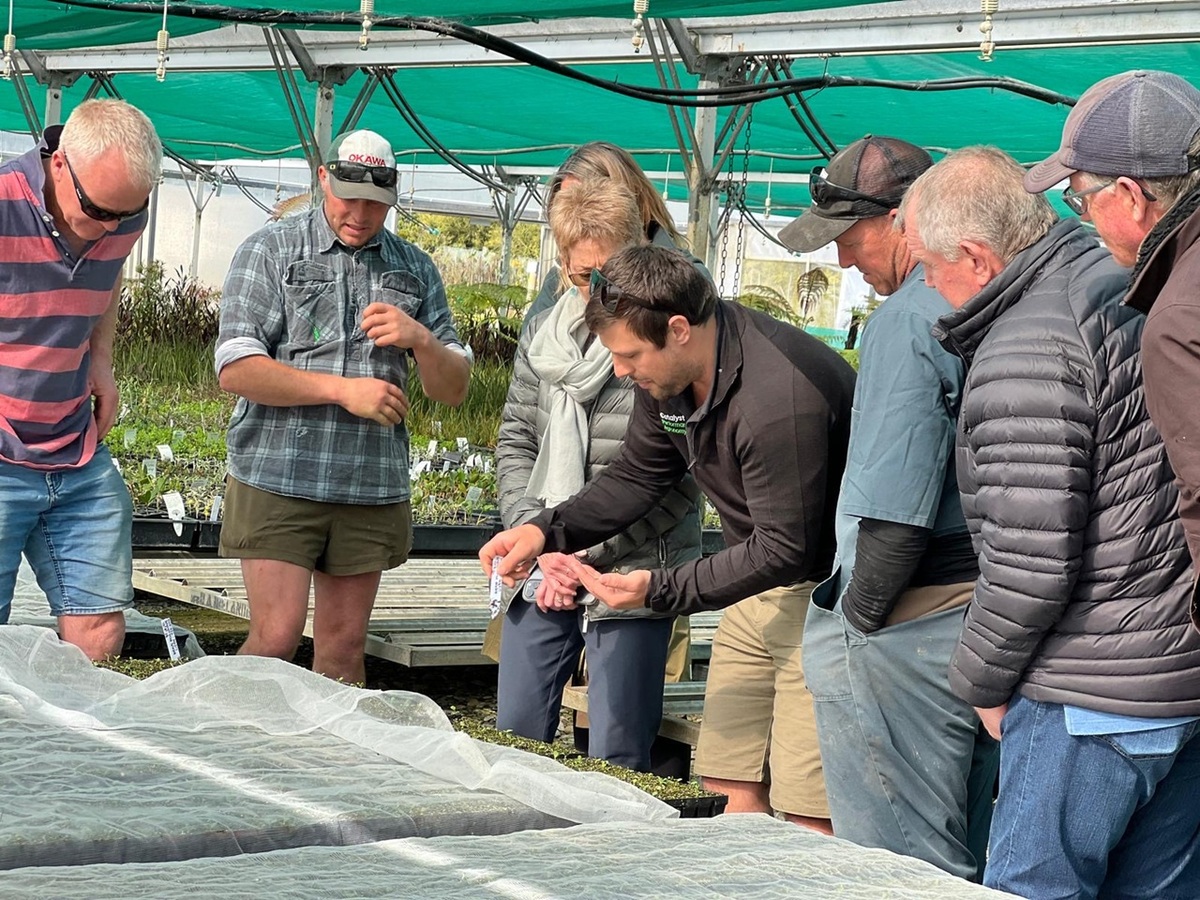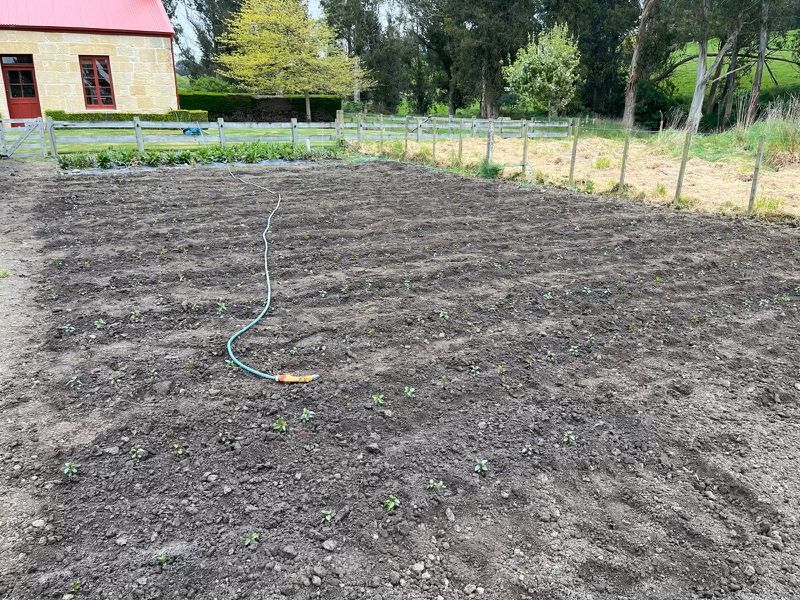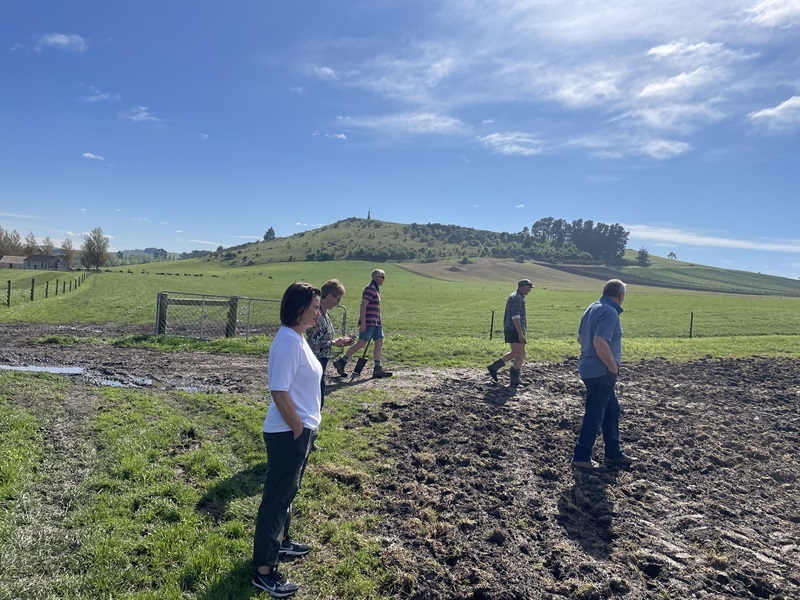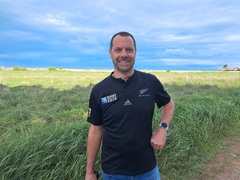Growing the future - Farmer/WDC collaboration germinating
Ashley Smyth
25 October 2024, 3:32 AM
 The Waitaki Grown team looking over some crop options. Photo: Supplied
The Waitaki Grown team looking over some crop options. Photo: SuppliedWaitaki farmers and the council’s Economic Development team have joined forces for a medicinal crop trial, in an effort to diversify land use in the area.
The project has been given the name Waitaki Grown, and after a year of research, the five chosen crops have gone in the ground this spring.
The group is made up of Ian and Gloria Hurst, Hayden Williams, Nick Webster, Peter Mitchell, and Philippa and Joe Cameron, who between them they farm crops, sheep and beef, and dairy.
The crops, which remain top secret at this stage, were chosen through research and a bit of trial and error, Waitaki District Council Business and Enterprise Growth lead Rebecca Finlay says.
“We just invited a group of progressive individuals who we thought had looked at diversification options in the past and maybe not been successful in isolation, and the whole idea was that we would bring them back, but as a cohort and look for more success as a collaborative group.”
The crops are being grown on the farmers’ land across seven sites from Totara, Five Forks and Enfield, all the way up to Otematata.
The group has been working together since September last year, and began by exploring different diversification options.
Ideas ranged from agrivoltaics - the use of land for solar energy production and farming simultaneously, to cherry growing.
“We looked to our neighbours to try and sort of learn from them. And we're aware that different districts, maybe were looking at like sheep milk or cider apples, or genetically modified apple that could grow further south.
“We looked at cherries pretty hard and we know that Central Otago have gone all in on the cherries.”
During the discovery phase, the group considered medicinal plants, and the natural health product market.
“That gave us the clearest indicators of an emerging, growing export-led market. And with New Zealand's recognition internationally as a really kind of trusted brand, we thought that there was an opportunity to grow medicinal plants in New Zealand,” Rebecca says.
“The coupling of unique selling points of natural health products and New Zealand's clean green image seems like a really great partnership.”
Another appeal of the plants is the “low input” they require. They don’t need lots of fertiliser or water, which works in perfectly with current farming systems, and some are legumes, which are nitrogen-fixing, Rebecca says.
“So you could really lower your environmental footprint across your farm if you took out a small quantity out of, say dairying, and put it into these medicinal crops.”
The plants have been imported from India, Germany, and America, and all have been proven in clinical trials to have good health giving properties, she says.
“So they deal with conditions that are on the rise, like metabolic illnesses, and anxiety and so on. We really see it as a growth area, unfortunately!”
While the costs of facilitation and support from experts have been covered through Better Off Funding,
Rebecca says the farmers in the group have been “incredibly generous”.

Some of the mystery medicinal crops in the ground. Photo: Supplied
“We've got an arrangement with them, whereby council contributes some of the funding, but they're also giving up their time, using their machinery, taking their land out of current production . . . so everyone is bringing stuff to the party, which is the way that council wants to work, moving forward.”
A small sample harvest will be done in the first year, but there won’t be a notable quantity harvested until the second year, she says.
“So, May 2026, we'll know what we're dealing with.”
Rebecca describes the trials as “essentially a really enormous experiment”.
“And as any good scientist does, we're recording everything, so that we can obtain those numbers, which we're hoping will be really robust, and scale them up, so we can look at whether it's viable from an economic perspective and what's the environmental impact.
“So recording anything that's put on crops, any watering, cultivation or planting, like, what are all those costs? What are all those other metrics that are going to indicate whether this is economically viable and environmentally advantageous.”
While all this is happening, Waitaki Grown is also looking into how the value chain - the series of steps that go into creating a final product - can be retained in the Waitaki.
“Moving away from an extraction economy in our primary sector and moving towards creating some really high-value products. So we're talking to local producers and manufacturers.”
Rebecca says they would also like to hear from anybody who works in this area, and thinks they could contribute.
“Because we're looking at, ‘could we create an oil? Could we create a gummy?’
“What cool products can we create that Waitaki can be known for, based on this trial?”
The plan is, if the trial proves successful, more farmers will join in.
“We know that farmers learn and evolve by looking over the fence at what their neighbour's doing. So these farmers are basically pioneering this so that their neighbors can go, ‘oh, I fancy a bit of that’,” Rebecca says.
“And we know that this Government has aspirations to double the value of exports in the next 10 years, and we see this as Waitaki's contribution.”
Rebecca wants to emphasise how generously the farmers involved in the project have engaged, and been willing to “put stuff on the table” to make things happen.
They are also grateful to other business owners and rural professionals who have reached out, and made “invaluable contributions in a totally voluntary capacity”.
“They’re awesome.”
Nick Webster, who is based at Totara, says it’s exciting to be part of “trying to begin something new”.
“The challenge will be delivering an end product that appeals to a consumer.”
Optimising land and water use by the primary sector is one of the five key pillars of the Uplifting Waitaki: Hāpaitia te Waitaki Economic Development Strategy.

A site visit. Photo: Supplied




